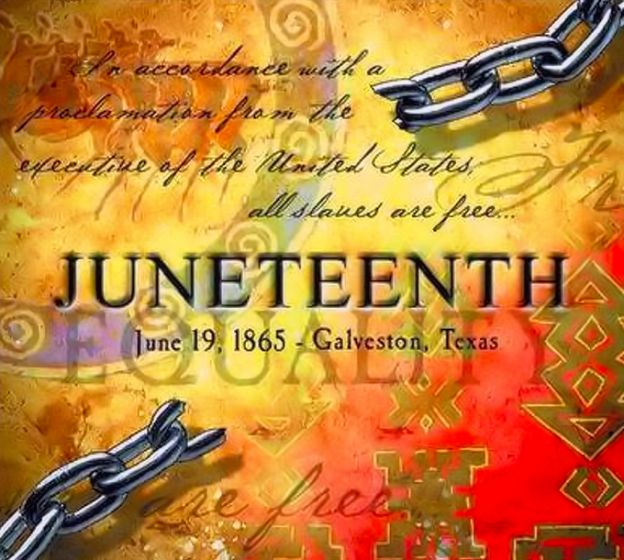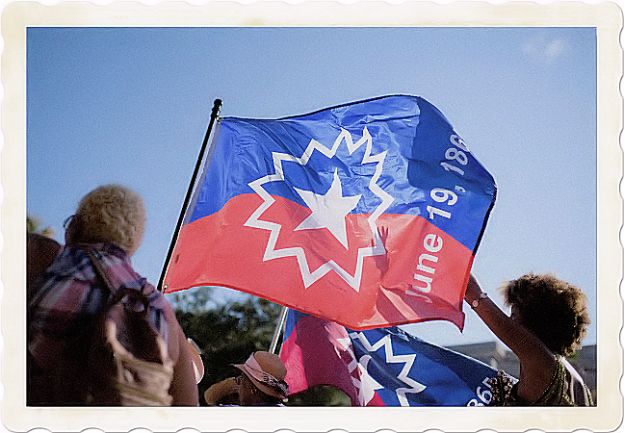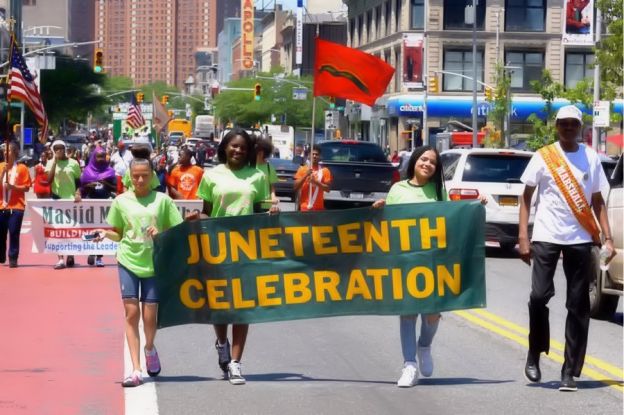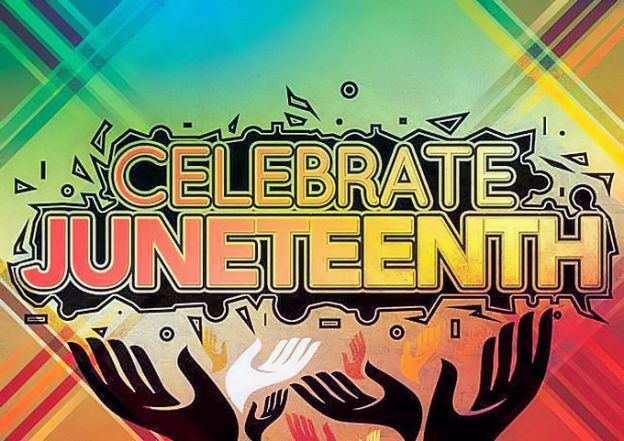
Juneteenth or Freedom Day or Emancipation Day, annual holiday celebrated on June 19 in the United States to commemorate the ending of slavery.
History of America is incomplete without the Juneteenth because We Americans believe in respecting freedom and the notion of it.
Juneteenth marks the end of slavery and begining of a new era where men and women had the basic human rights and they could live life on their own terms.
Slavery was a curse to the society and now that it’s gone, let’s celebrate Juneteenth in a grand manner!
The essence of life is when it is enjoyed with a dash of freedom. Juneteenth will always be remembered as it freed hundreds and thousands of souls trapped in the net of slavery!
Without freedom life would be like a thirsty man on a sea. You can see water everywhere but drink nothing and eventually die deep within due to thirst (thirst of freedom). Wishing you Juneteenth remembrance.
The celebration of abolition of slavery is one of the biggest steps in the history of the nation and hence it needs to be celebrated with great joy! Happy Juneteenth!
Celebrate freedom like never before on this Juneteenth because at the end of the day nothing matters more than a happy mind.

Without much to speak, the Juneteenth is one of the most important days on the calendar. Happy homecoming to the feeling of freedom.
Can you imagine a life that was owed to others and you would be constantly used by others as their slaves? No, right ? Thanks to Juneteenth for happening!
You can rule people’s hearts but not their lives and this is what Juneteenth day reminds us always. Freedom is basic!
Juneteenth, also known as Freedom Day or Emancipation Day, annual holiday celebrated on June 19 in the United States to commemorate the ending of slavery. For more than a century, Juneteenth was observed mainly in Texas and parts of Arkansas, Louisiana, and Oklahoma. In recent decades, communities across the nation have adopted the holiday.
June 19 marks the day in 1865 when word reached African Americans in Texas that slavery in the United States had been abolished. More than two years earlier, on New Year’s Day, 1863, President Abraham Lincoln had issued the Emancipation Proclamation. Delivered during the American Civil War, this proclamation ordered the freeing of all slaves in states that were rebelling against Union forces. The proclamation had little effect in Texas, where there were few Union troops to enforce the order.

African American residents of Austin, Texas, celebrate the “freedom day” festival known as Juneteenth. The annual holiday, celebrated June 19th, commemorates the date in 1865 on which General Gordon Granger arrived in Texas to force renegade slave owners to release their slaves.
Before Granger’s arrival, slaves in the region did not know that they were legally free, even though the Emancipation Proclamation of 1863 had freed them more than two years previously. Today Juneteenth is celebrated throughout the country, but festivities are especially prominent in Texas, Oklahoma, Arkansas, and Louisiana.
News of the proclamation officially reached Texas on June 19, 1865, when a Union general backed by nearly 2,000 troops arrived in the city of Galveston. The general, Gordon Granger, publicly announced that slavery in the United States had ended.
Reactions among newly freed slaves ranged from shock and disbelief to jubilant celebration. That day has been known ever since as Juneteenth, a name probably derived from the slang combination of the words June and nineteenth.
Juneteenth celebrations began in Texas the following year. Within a few years they had spread to other states and became an annual tradition. Celebrations often opened with praying and religious ceremonies and included a reading of the Emancipation Proclamation.
A wide range of festivities entertained participants, from music and dancing to contests of physical strength and intellect. Food was central to the celebrations, and barbecued meats were especially popular.

In the late 19th century, African Americans in the largely segregated South began migrating north and west in search of a better life. Many of these blacks transplanted their Juneteenth celebrations with them. African Americans continued to migrate from the South to other parts of the country during the late 1930s and 1940s. By World War II (1939-1945), however, Juneteenth celebrations began to decline.
Historians cite several reasons for this. Many African Americans, removed by 70 years or more from the 1865 emancipation, were less inclined to carry forward the enthusiastic celebrations of earlier generations. In addition, some historians note that many African Americans wanted to distance themselves from vestiges of slavery.
Interest in Juneteenth celebrations further waned during the civil rights movement of the 1950s and 1960s, when the holiday was associated with past repression and segregation. In some southern cities, Juneteenth was the only day each year when all-white local governments would permit African Americans to use city parks and zoos. In 1980 Juneteenth became an official state holiday in Texas. Since then, observance of Juneteenth has spread to other parts of the United States.
Today, Juneteenth celebrates freedom for African Americans in addition to many other themes, including education, self-improvement, African American accomplishments throughout history, and tolerance and respect for all cultures. Festivities may include parades, picnics, tributes and speeches, music, gospel performances, exhibitions, baseball games, rodeos, and other activities.
Around 24 states and the District of Columbia are set to legally recognize Juneteenth as a public holiday this year, according to a Pew Research Center analysis which forecasts that more states will recognize it as a paid holiday next year. Since the holiday was signed into federal law, multiple states have had Juneteenth as a paid holiday for employees.

States With Juneteeth As Paid Holiday
According to The Pew Charitable Trusts:
New York, Maine, Louisiana, Illinois, Oregon, Massachusetts, Virginia, Washington, and Texas, which was the first state to officially recognize the holiday in 1980.
Georgia, Ohio, Nebraska, Maryland, South Dakota, Colorado, Connecticut, and Delaware, Alabama recently recognized Juneteenth as a paid state holiday, according to News Observer.
You can also read some articles about other Festival and Holiday Days:
Martin Luther King Day January 17, 2022
Saint Valentine’s Day February 14, 2022
Presidents Day February 21, 2022
Saint Patrick Day March 17, 2022
April Fools Day April 1, 2022
Good Friday April 15, 2022
International Worker Day May 1, 2022
Memorial Day May 30, 2022
Juneteenth Holiday June 20, 2022
Independence Day July 4, 2022
Labor Day September 5, 2022
Halloween or all hallows eve October 31, 2022
Thanksgiving Day November 24, 2022
Black Friday Day November 25, 2022
Christmas Holidays December 25, 2022
Chinese New Year February 1, 2022

